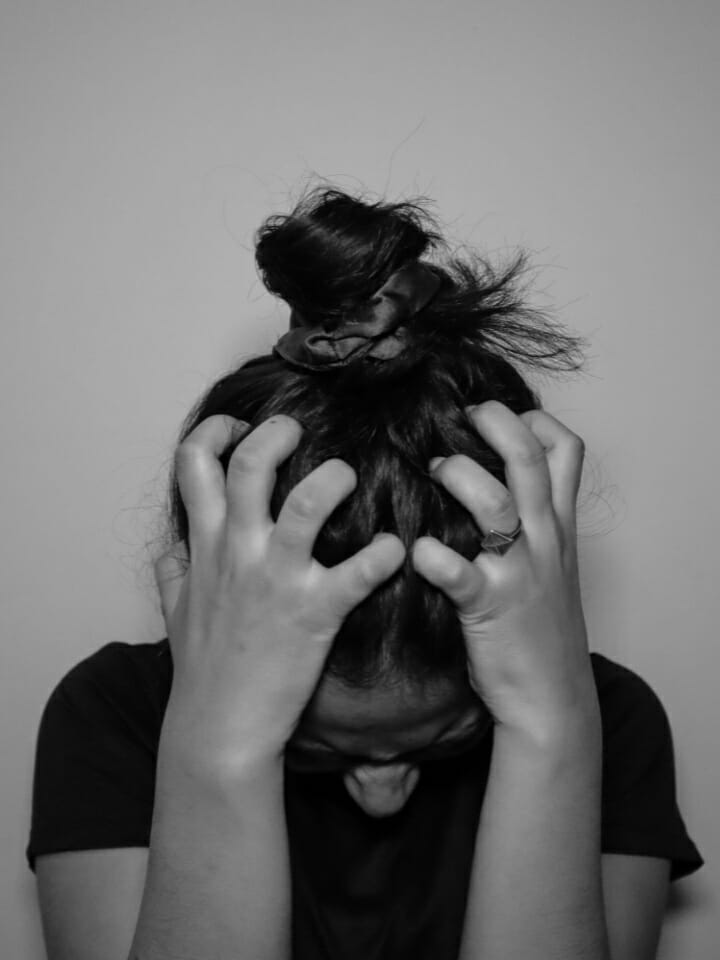![]()
Beating that internal dialogue of depression

We all know that depression is a serious condition that affects your physical and mental health.
Depression ranges in seriousness, from mild, temporary episodes of sadness to severe, persistent depression. Clinical depression is the more-severe form of depression, also known as major depression or major depressive disorder. It isn’t the same as depression caused by a loss, such as the death of a loved one, or a medical condition, such as a thyroid disorder.
To diagnose clinical depression, many doctors use the symptom criteria for major depressive disorder.
We’ve all experienced flat spots but, how does depression affect us feel physically? When you feel there’s something going on it’s important to know what’s what, and expert Nicole Topp helps us break it down into bite-sized pieces.
It’s good to be clinical about depression because it’s important to be really clear on what depression is, and what it is not.

The two aspects of depression
There are two aspects to depression, there’s one picture that the majority of us really focus on, and then there’s real life, which is the highly functioning aspect.
We can have a look at our mental health in the same way we would use a measuring tool, by checking the boxes. This is a tool that psychologists use. Doing these checks is so important because mental health is serious.
It’s about making sure that everybody is fully supported. Things to look for may be, experiencing a lower depressed mood every day, very little interest in activities you would normally enjoy, weight loss, or gain or sudden increase/decrease in appetite.
And the same goes for children. It’s not being able to move fast or think properly, a constant fatigue, difficulty in decision making, sleep deprivation. These are the physical aspects but then you have to deal with the emotional feelings – worthlessness, excessive guilt and there aren’t enough discussions around those.

The darker side of depression
On the heavier and darker side of the scale, it’s recognising any feelings of wanting to end life – whether this means specific plans have been thought about, or attempts have been made. This is extreme, and a lot of people don’t reach out, so it’s also important to read the signs in the people around us. We all have people who depend on us and at the same time we have to depend on others.
It’s important to be clear that depression in our heads is our normal sort of functioning.
Someone who’s depressed can’t get out of bed, they can’t do the normal things. They are flat and have difficulty holding conversations but what about the highly depressive state?
We can talk about different levels of depression, but it can really depend on where you’re at on the spectrum.
Not everyone who feels depressed acts depressed

We need to be really aware that we have these highly functional people who wear the most incredible masks, and they can often be the life of the party. They can often be the first person to make you laugh because they know what pain feels like. You may not even realise that you have been masking depression.
Nicole Topp speaks from experience. She says, “I would always try to make everybody else laugh and I would always try to make sure that everyone was fully seen and supported because I just didn’t want them to feel like that. Because I know what that felt like.”
Looking at how people function is very different and it’s difficult in this day and age, because mental health seems to get thrown around in all sorts of different ways. There’s still really frustrating stigma attached, so we tend not to talk about it enough, but we need to normalise it.
The highly functional depressive state is an interesting one because it’s an internal dialogue and nobody else knows what’s going on. That’s the tricky part, so there’s every chance that you might feel that way, but you don’t want to say, or you don’t recognise it as being a thing until we sit down and do a bit of a self-audit.
You might think if the psychologist was to analyse me right now, there’s every chance that there’s more going on than what I’m really allowing myself to believe.
It’s common for new mums suffer from postnatal-depression

New mums slip into this state all the time where they’ll push thoughts aside because they are just in new territory and been thrown in the deep end or sleep deprived. But really they are feeling like a failure as a parent.
Often, we don’t think we’re in a bad enough way to seek help, but we all know that we do so much better with that little bit of support and awareness. It’s an unhealthy way of thinking.
It’s like you need to go back to a factory setting when you’ve let your boundaries go. You’re not looking after yourself, you’re dehydrated, the negative cycles come back. You need to do a body scan and identify if something’s out of whack, I’m not doing enough for myself.
Brené Brown comes back into play here with her concept that, we’ll always look for evidence that we don’t belong, that we’re not good enough and that you’re not a good enough parent. Being a parent is bound to open up a whole can of worms for most people and increase those anxiety levels. There is a lot of expectation vs reality.
How to know if you need to seek help

It’s really important, especially postnatally, to notice when these things are happening because it can easily snowball, or you can get stuck and then you change your relationships with yourself
The simple act of smiling is a simple way you can check in with yourself. When did I even smile today? Would I be worried about a friend right now in the same state? What is the quality of my life right now?
We tend to push through when it comes to ourselves but in a loved one we would notice. So, apply the same thought patterns to yourself. A depressive swing can be the downside of stress and anxiety. So always notice when it’s been fluctuating. Sometimes it can simply be recovering from a stressful situation and other times it likes to hang on.
It’s finding the little indicators. You may have lost yourself a bit – your creativity or hobbies – we don’t think we’re good enough and stop going out or people stop wanting to hang out with us. And this is where we need to start unpacking a bit.
There’s no quick fix
What can we do to move forward? It’s not a quick fix, but a big one is the link between our gut, our brain, and our mood. So, making sure that our gut is really happy and healthy is going to be important.
Some support here with a professional is always a good starting point. If we can’t process certain foods such as gluten or wheat it is going to affect our mood and make us feel that little bit more inflamed. Inflammation and mental health are good friends.
If there’s a possibility that there’s something going on with your gut, that’s something that’s really important to focus on. Like building a Lego model, you have to start with a good base, and this has to be done right or otherwise everything else is going to crumble when we place the last pieces on top. We all know if we’re missing a few pieces, it’s just not going to have that structure and stability.
How your diet and exercise can help regulate your emotions

Something really important from the inflammation aspect from the gut and our mental health is stabilising our blood sugar levels. This just means keeping consistent food coming in, not just eating the scraps of what’s left behind at the end of the day. You have to feed your cells so they can function for you, they need good fuel.
If you need to snack a little bit, choose some real food that have had as little human interference or refinement as possible. Grab a handful of nuts. Always have healthy snacks on hand.
Movement is also important when you’re feeling just average. Antidepressants can leave you feeling unmotivated, but cardio is proven to improve mental health so even meeting a friend for coffee somewhere where you have to walk. Getting that first coffee can be very motivating! And a walk is cheaper than the gym!
Or just dance and be silly, whatever makes you feel happy. We all need our own support team/network. People around us who make us feel comfortable. In the modern age the sense of community can get lost so always make sure you call up that friend to go out for sushi or go for a walk.
It’s all about those connections, conversations, and human contact – closeness and belonging. Rebuilding community. Technology has replaced that sense of doing things together, so it has to be worked at and rebuilt.
Keep it simple and keep talking.
Get the support you need
If you suspect you have postnatal depression or any type of depression or anxiety, we advise you see your GP immediately or call PANDA (Perinatal Anxiety and Depression Australia) on 1300 726 306, Lifeline on 13 11 14 or Beyond Blue on 1300 22 4636 for out of hours support.


